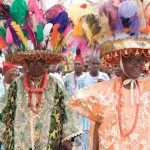Better ratings
In October 2011 Fitch Ratings revised Nigeria’s outlook from negative to stable.
Nigeria’s improved outlook reflects an improved outlook for reforms following elections in April and the appointment of a strong economic team. In addition, tighter monetary policy and slightly better fiscal discipline have arrested the rapid pace of reserves decline seen in the first three quarters of 2010, which had prompted the negative outlook last year.
“The stable outlook anticipates continued reforms progress, a tighter budget for 2012, including progress towards scrapping the petroleum subsidy and making the Nigeria Sovereign Investment Authority, the sovereign wealth fund, operational,” says Veronica Kalema, a director in Fitch’s Sovereign group.
According to Fitch, key planned regulatory reforms in the power and oil sector are moving ahead, privatization in the power sector has started and tariff and gas price reforms are scheduled for early 2012. The reforms are expected to facilitate the investment needed to address the acute power shortage.
Support from the state governors for the removal of the fuel subsidy in exchange for 60% of the savings going towards meeting the new minimum wage will improve the chances that it will be implemented. The reform will reduce foreign exchange and fiscal leakage and reduce pressure on Nigeria’s reserves, promote more efficient energy usage and spur downstream investment, according to Fitch.
In addition, the rating agency says, the planned reforms to the agriculture sector would improve output and productivity and increase rural incomes, with a huge medium-term positive impact on the economy, even if they are only partially implemented.
Nigeria’s key credit indicators – strong growth, low public debt and a strong external balance sheet – continue to provide strong support to the rating. Fitch expects Nigeria to sustain its high growth rates of 7%-8%, which are far higher than the ‘BB’ five-year median of 4.4%, as a result of the planned reforms, continued recovery of oil production and strong domestic demand, the agency reports.
 Fiscal policy has been tighter at the federal government level in 2011 and total international reserves have been stable over the past year. However, Fitch says, overall fiscal policy at the consolidated government level is still relatively loose, with overall spending still high, making monetary and exchange rate policy more challenging. Proposals to base the 2012 budget on a lower benchmark oil price are therefore encouraging, although the ultimate fiscal stance will depend on the budget that emerges from the National Assembly.
Fiscal policy has been tighter at the federal government level in 2011 and total international reserves have been stable over the past year. However, Fitch says, overall fiscal policy at the consolidated government level is still relatively loose, with overall spending still high, making monetary and exchange rate policy more challenging. Proposals to base the 2012 budget on a lower benchmark oil price are therefore encouraging, although the ultimate fiscal stance will depend on the budget that emerges from the National Assembly.
Some caveats
Although international reserves have stabilized, they have not picked up despite higher oil prices and production owing to high fiscal spending including the large fuel subsidy, as well as negative real interest rates and private foreign exchange demand. This is a negative for Nigeria compared with other oil producers which have rebuilt reserves.
Increased pressure on the currency due to global risk aversion prompted the Central Bank of Nigeria to increase interest rates sharply by 275bps in early October (bringing the overall increase in interest rates since September 2010 to 600bps) to stabilize the exchange rate and restore confidence. This also restored positive real interest rates, Fitch states, which will help bear down on still relatively high inflation.
However, fiscal reforms will ultimately need to be part of the solution to rebuild Nigeria’s reserves and reduce pressure on the currency and interest rates. Passage of the long-delayed Petroleum Investment Bill would be positive in this respect, as well as reducing uncertainty regarding the energy sector investment regime, according to Fitch.
The agency cautions, however, that a sharp and sustained fall in oil prices or a decline in reserves owing to renewed fiscal slippage are the likely main sources of downward pressure on the ratings.
Source: Fitch Ratings www.fitchratings.com
On the whole, yes
Invest in Nigeria? All things considered, the answer is yes.
The positives:
• With a population of around 150 million, Nigeria is Africa’s most populous state. It is therefore potentially an enormous market – something foreign companies are quietly discovering.
• The Nigerians have one of the highest literacy rates in Africa; and they include some naturally very enterprising people.
• With the return of civilian rule, Nigerian political parties and the party system are quite conventional. What gives stability is that most share the same basic socio-economic approaches.
• One senses that Nigerian business is consciously beginning to diversify. This means space for entrepreneurs, and all the signs are that Nigeria’s very big and talented diaspora is beginning to come home with new ideas and business values.
• Nigeria also has a very high agricultural potential. Nigeria was once the bread basket of the rest of West Africa. There clearly is a role here for South African skills.
• Nigeria has a vigorous and diverse print media.
The negatives:
• Malaysia, Singapore, Taiwan and Indonesia were roughly at the same level of development as Nigeria in 1960. All of them have developed while the vast majority of Nigerians are at the same level of development as they were in 1960.
• Nigeria is subject to ethnic and religious tensions. These have to some extent been muted by the expansion of the federation from three big regions to 36 small states, which largely correspond with different ethnic groups.
• Oil has the potential to transform Nigeria’s economy. Instead it has led to corruption on a vast scale and the development of a tiny class of extraordinarily rich Nigerians, with the majority of the population still in poverty. Dependence on oil has also stunted growth in other sectors of the economy.
• Transparency International says Nigeria is one of the fifth most corrupt countries in the world.
Omega Investment Research is a South African-based investment advisory and strategic marketing consultancy



